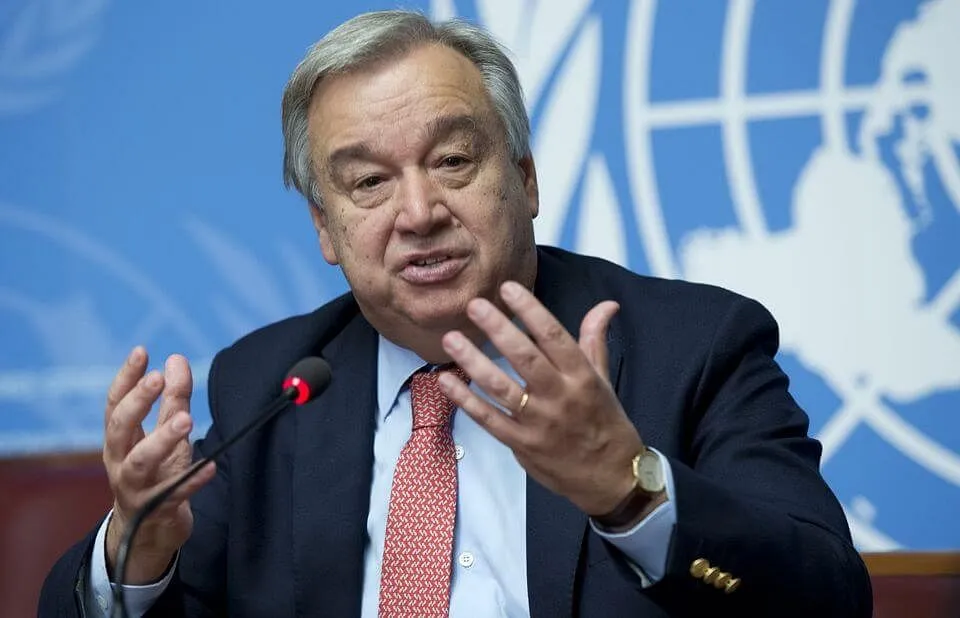United Nations Secretary General UNSG)Antonio Guterres has called COVID-19 the “gravest test” the world has “facedsince the founding of the organisation” and efforts to combat the virus “thefight of a generation—and the raison d’etre of the United Nations itself”. Without fully going into the merits ofGuterres’s evaluation it is clear, by now, that societies, economies andpolities will all be adversely impacted in enormous but varying measures bythis pandemic.
Where Guterres cannot be questioned is inhis assertion that the United Nations System should promote, if not, ensureinternational cooperation and coordination to meet the COVID-19 challenge. Butglobal collaboration even in times of acute global crises has always remained aquest, seldom fully realised; the realities of the world and its powerstructures based on national interests act as brakes. Ironically these structures are reflected inthe institutional makeup of the UN itself. The organisation was designed toultimately preserve the privileges and interests of the victors of World WarII. Within the UN system it does so in the Security Council where theorganisation’s power ultimately resides.
How has the UN system handled COVID-19 till now?
The World Health Organisation (WHO) is thespecialised agency with the mandate to safeguard global public health. As suchit has the primary responsibility to respond to all public health relatedaspects of COVID-19. China brought the emergence of a new pathogen to theorganisation’s attention on December 31st last year. WHO activated itsmachinery to deal with the situation but it has been criticised by some,especially the United States, for being tardy, negligent and overly concernedwith Chinese sensitivities. Indeed, US President Donald Trump has been sounhappy that he has withdrawn all US funding to it. At this stage, with theadvantage of hindsight it does seem that WHO has had a great desire not toannoy China
WHO Director-General Tedros Ghebreyesustravelled to China in end January and met Chinese President Xi Jinping. Hegreatly praised China’s response to the challenge of a new coronavirus. Thisappreciation was not needed for WHO is not a political organisation.Thereafter, the end February report of a joint WHO-China technical group ofexperts did not remain confined to technical health and medical issues but strayedinto other policy areas. This too was unwarranted and indicative of WHO bowingto Chinese persuasions if not pressure.
Most importantly, the WHO executive boardmet on February 4-8 but Ghebreyesus did not raise an alarm by insisting thatthe matter be put on the agenda even though the organisation had declared it aPublic Health Emergency of International Concern on January 30th. He merelybriefed the board twice during these days. If WHO must carry blame so mustChina and the international community. The international community did not takethe matter seriously enough despite China’s unprecedented step of locking downthe Hubei province; its capital Wuhan was the origin of COVID-19. The Chinesetoo obfuscated the seriousness of the new coronavirus from the internationalcommunity.
While all these points are valid thecurrent international focus should not be on raising them but on ensuringglobal co-ordination to combat it. Thus, Trump’s continuing diatribe againstthe WHO and the withholding of funds is ill-advised.
The UN General Assembly has adopted tworesolutions by consensus on various aspects of COVID-19. The first stressed thecentral role of the UN system in the ‘global response’ to the pandemic and needfor global solidarity. This and other affirmations—the need to uphold humanrights, the need to address vulnerable social groups and need to intensifyinternational cooperation did not however provide concrete action points. Thesecond resolution was more focussed in demanding that COVID-19 medicines andvaccines, when developed, should be accessible to all. It also praised theefforts of the WHO. The US technically ‘allowed’ the resolution to go throughbut later tried to prevent it; no doubt because of Trump’s ire againstWHO butperhaps also because he would like to take advantage if a vaccine is developedby a US entity. There will be big money at stake.
The UN organ that seems almost paralysed isthe Security Council though global turbulence may impact international peaceand security which the body has to uphold. It has held only one closed doormeeting. Reports indicate that the US and China clashed on the origin ofCOVID-19. Earlier in March China prevented a UNSC meeting on the ground thatCOVID-19 was not within its remit. During the closed door meeting Guterresbriefed the council and the text of his remarks is within the public domain.
Guterres expressed the fear ofdestabilization of fragile societies and polities, the damage to all countries’political legitimacy if elections could not be held on schedule, the risk ofincreased violence in conflict zones, the increased potential of terrorism andthe dangers of bio-terrorism. All this may impact international peace andstability but the major powers, pre-occupied with the management of theCOVID-19 situation, are paying no attention to these concerns.
Ultimately the UN system is a mechanismwhich the international community can use to foster cooperation. If, however,the will to do so is missing no mechanism can succeed despite the efforts ofinternational civil servants led by the UNSG. Equally, international civil servants can also fail the globalcommunity. In this case there is plenty of blame to go around but now is thetime to secure such cooperation as is possible and not focus on the blame-game.






